Newsroom
Stay informed with our latest news and announcements on this page. For more in-depth content, we also encourage visitors to explore our bimonthly STRUCTURES Newsletter magazine, which features a variety of articles, interviews with members, and background information on our latest research and activities.
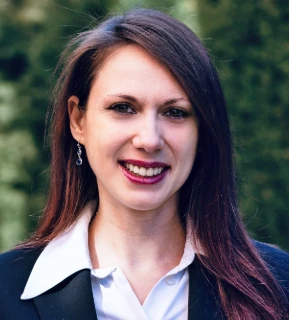
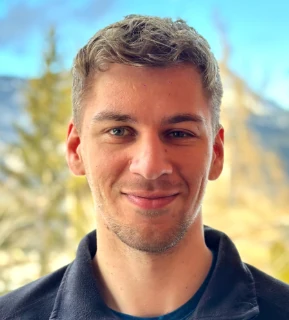
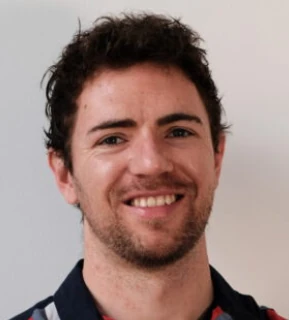
The STRUCTURES Young Researchers Convent (YRC) has elected Thalia Traianou, Fabius Krämer, and David Maibach as its new speakers for 2026 in its recent General Assembly. We warmly congratulate the new speaker team and wish them a successful start!
Reflecting on her motivation to run for the position, Thalia Traianou says: “I have benefited enormously in my academic path from communities that made me feel visible and connected as an early-career researcher, and I want to help shape that for others.” Fabius Krämer emphasizes the importance of interdisciplinary exchange: “I am committed to encouraging and enabling young researchers to broaden their knowledge beyond their primary research area. STRUCTURES provides an excellent environment for this, and I would be glad to actively support this mission.” David Maibach, who previously served as a YRC speaker during his PhD in Heidelberg, adds: “I have already been a speaker during my PhD here in Heidelberg and thoroughly enjoyed the work that comes with this position. For me, there lies great potential in having an overarching organisation for young scientists through which they can discuss, exchange, and actively contribute to the cluster's future.”
The new speaker team succeeds the previous speaker trio, Ricardo Waibel, Freya Jensen, and Marvin Sipp, whom we warmly thank for their exceptional commitment and outstanding service to the Young Researchers Convent. Their dedication, approachability, and sustained engagement significantly contributed to fostering a vibrant and supportive community. We are deeply grateful for their tireless efforts and the strong foundation they have built for the next speaker team.
The Young Researchers Convent (YRC) is the dedicated early-career platform within the STRUCTURES Cluster of Excellence. It brings together Bachelor's and Master's students, PhD candidates and postdoctoral researchers who are either funded by STRUCTURES or working on research topics that align with the cluster’s mission. The YRC supports early-career researchers in realizing their own projects – ranging from travel funding for conferences and workshops worldwide to the organization of seminars and talks. Any early-career researcher working in a field connected to STRUCTURES can apply for YRC membership.
The YRC speakers take responsibility for organizing funding calls, evaluating applications for travel and event support, processing membership requests, and representing the YRC as full members of the Steering Board – ensuring that the perspectives of early-career scientists help shape the future direction of the cluster. In this way, the YRC plays a central role in strengthening early-career independence and support, while fostering exchange, collaboration, and a strong sense of community across all career stages within STRUCTURES.
Further information:
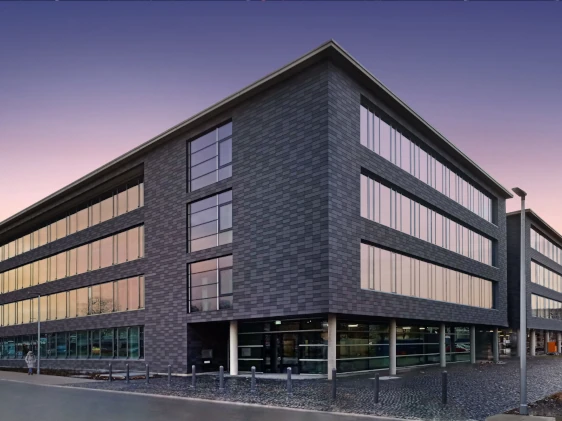
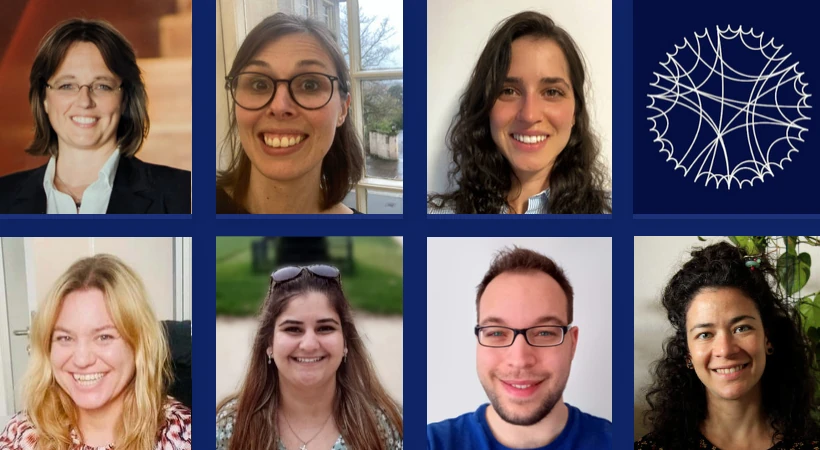
Following an interim phase at Mathematikon, STRUCTURES has relocated its Neuenheimer Feld offices to their designated location on the third floor of the “EINC” building INF 225a. Together with the theory centre Collis Philosophicus at Philosophenweg, INF 225a now serves as one of two main locations where the cluster has an office presence, and as a hub for its community and activities.
The STRUCTURES Project Management Office plays a key role in supporting and coordinating these activities. It offers comprehensive services for all cluster members, ranging from administrative support related to membership, travel funding, and the guest programme to the coordination of internal and public events. In addition, the office oversees equal-opportunity initiatives including the STEPS Programme, the parent–child offices “KIDS” operated in collaboration with IsoQuant, and the cluster’s outreach activities.
Directly adjacent to the new office rooms at EINC is Oberstübchen – the cluster's main scientific venue for seminars, workshops, and meetings. The Oberstübchen is part of STRUCTURES College, an academic unit dedicated to fostering international scientific exchange across disciplines and career stages. Activities of the College include the guest programme, the weekly STRUCTURES Jour Fixe as a central forum for exchange, and research-oriented teaching measures – one example being the regular meetings of STRUCTURES' “Crowds” on topics such as Mathematical Physics, Computational and Quantum Physics. The expression “Oberstübchen” is a German colloquial for brain, literally “upper room.”
For practical information related to meetings and room bookings of the Oberstübchen, all STRUCTURES members are welcome to contact office@structures.uni-heidelberg.de.
As part of its broader role as a research facility, EINC is becoming a hub for STRUCTURES' experimental activities in the direction of physical computation – and home to the groups of various STRUCTURES members, including Markus Oberthaler, Wolfram Pernice, Johannes Schemmel, Julian Schmitt and Johannes Schemmel. The central approach to research is interdisciplinary – bridging physics with computer science in order to explore new paradigms of information processing. Physical computation refers to approaches going beyond von-Neumann computing architectures, building on physical structures available in highly controllable physical systems based on electrons, photons and atoms.
Contact address:
STRUCTURES Project Management Office
Im Neuenheimer Feld 225a and Philosophenweg 12
D-69120 Heidelberg
+49 (0) 6221-54 9186
office@structures.uni-heidelberg.de
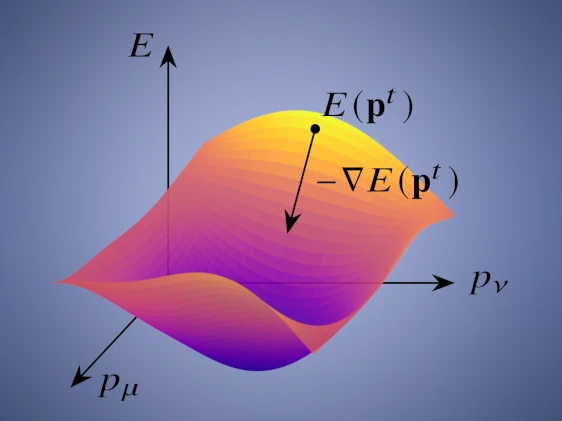
Orbital-free approach enables precise, stable, and physically meaningful calculation of molecular energies and electron densities.
By applying new methods of machine learning in quantum chemistry research, Heidelberg University scientists have made significant strides in computational chemistry. They achieved a major breakthrough towards solving a decades-old dilemma in quantum chemistry – the precise and stable calculation of molecular energies and electron densities with a so-called orbital-free approach, which uses considerably less computational power and therefore permits calculations for very large molecules. Within the STRUCTURES Cluster of Excellence, two research teams at the Interdisciplinary Center for Scientific Computing (IWR) have refined a computing process long held to be unreliable such that it delivers precise results and reliably establishes a physically meaningful solution.
How electrons are distributed in a molecule determines its chemical properties – from its stability and reactivity to its biological effect. Reliably calculating this electron distribution and the resulting energy is one of the central functions of quantum chemistry. These calculations form the basis of many applications in which molecules must be specifically understood and designed, such as for new drugs, better batteries, materials for energy conversion or more efficient catalysts. Yet such calculations are computationally intensive and quickly become very elaborate. The larger the molecule becomes or the more variants need checking the sooner established computing processes reach their limits. The “Quantum Chemistry without Orbitals” project is positioned here at the interface of chemistry, physics, and AI research.
In quantum chemistry, molecules are frequently described using density functional theory, which allows for the fundamental prediction of chemical molecular properties without having to calculate the quantum mechanical wave function. The electron density is used as the main quantity instead – a simplification that finally makes computations practicable. This orbital-free approach promises especially efficient calculations but until now was considered barely useful, since small deviations in the electron density led to unstable or “non-physical” results. With the aid of machine learning, the Heidelberg method finally solves this precision and stability problem for many different organic molecules.
The new process called STRUCTURES25 is based on a specifically developed neural network that learns the relationship between electron density and energy directly from precise reference calculations, capturing the chemical environment of each individual atom in a mathematically detailed representation. A unique training concept was pivotal: the model was trained not only with converged electron densities but also with many variants surrounding the correct solution – generated by targeted, controlled changes in the underlying reference calculations. This computing process is therefore able to reliably find a physically meaningful solution for molecular energies and electron densities even in case of small deviations. It remains stable without “getting lost” in the calculation, the Heidelberg researchers emphasize.
In tests on a large and diverse collection of organic molecules, STRUCTURES25 achieved a precision that can compete with established reference calculations, for the first time demonstrating a stable convergence using an orbital-free approach. The performance of the method was demonstrated not only on small examples but on considerably larger “drug-like” molecules as well. Initial runtime comparisons prove that the computing process can scale better with growing molecule size and hence increase the speed of the calculation. Calculations formerly considered too elaborate are now within reach.
“Orbital-free density functional theory long held the promise of faster calculation – but not at the expense of the physics, please,” states Prof. Dr Fred Hamprecht, who leads the Scientific Artificial Intelligence research group at the IWR. “With STRUCTURES25, we demonstrate for the first time that computing can include both: chemically precise energies and a stable, practical optimization of the electron density.” Prof. Dr Andreas Dreuw, head of the Theoretical and Computational Chemistry research group at the IWR, adds: “Optimization is no longer unstable, and hence a major step forward for considerably faster predictions with high precision. Now simulations are within reach that classic processes could barely touch, such as when many configurations or very large molecules need investigating.”
Underpinning the work was the close interdisciplinary cooperation of the research groups within the Cluster of Excellence STRUCTURES: A Unifying Approach to Emergent Phenomena in the Physical World, Mathematics, and Complex Data at Heidelberg University. Here researchers from various disciplines study how structures emerge, how they can be detected in large datasets, and the benefits they offer science and technology. In addition to the support provided by the Cluster of Excellence, funding also came from the Wildcard program of the Carl-Zeiss-Stiftung, which supports especially innovative and particularly bold projects. The research results were published in the “Journal of the American Chemical Society”.
Original Publication:
R. Remme, T. Kaczun, T. Ebert, C. A. Gehrig, D. Geng, G. Gerhartz, M. K. Ickler, M. V. Klockow, P. Lippmann, J. S. Schmidt, S. Wagner, A. Dreuw, and F. A. Hamprecht, Journal of the American Chemical Society, DOI: 10.1021/jacs.5c06219.
Further information:
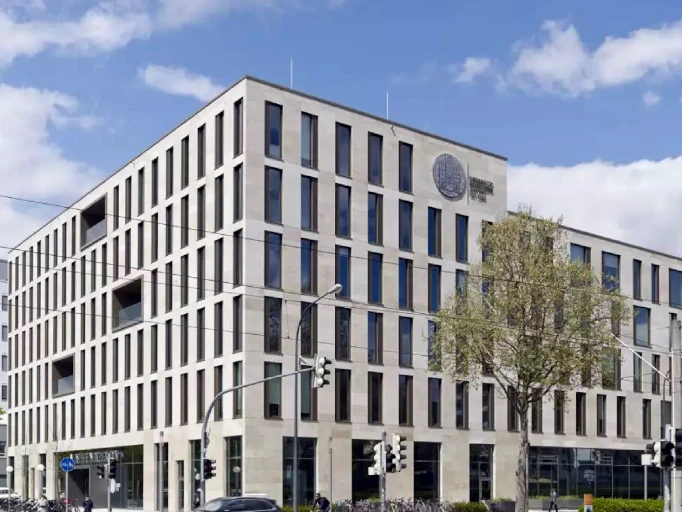
We are happy to announce the workshop “Pathways into Mathematics of SPDEs”, taking place from Monday, March 9, 2026 to Wednesday, March 11, 2026 in Heidelberg. The workshop is a joint initiative by doctoral students from Karlsruhe's KCDS and Heidelberg's HGS MathComp. Its aim is to provide early-career researchers with a smooth introduction to this highly relevant topic.
Stochastic partial differential equations (SPDEs) are a notoriously challenging topic in combining advanced theory of both partial differential equations and stochastic processes. However, it is due to this sophisticated combination of both concepts that they emerge as a powerful and versatile tool for modelling highly diverse phenomena in the sciences. While incredibly useful to describe these systems, utilising them jointly with data and measurements to accurately determine characteristics or provide reliable predictions is still very much a work in progress in (applied) mathematics.
A central challenge, especially for junior researchers with an interest in the field, is that there is a major gap to overcome from available lecture materials, graduate courses and books to current problems and challenges in applied mathematics for SPDEs. The workshop aims to support doctoral students in closing this gap, growing a network of junior researchers and fostering interdisciplinary collaboration.
Registration is open until February 15 via the following link:
https://ssp.math.uni-heidelberg.de/WS_SPDEs_2026/Registration/reg.html
Please note: If you miss the deadline but have a strong interest in the workshop, you are welcome to contact the organizers – late inquiries may still be considered depending on availability.
The workshop is hosted by the research group of Prof. Claudia Strauch, and organized by Timo Dörzbach, Louise Kluge, Josef Martínek, Hans Reimann and Maximilian Siebel. The STRUCTURES Cluster of Excellence is proud to support this workshop.
Further information:
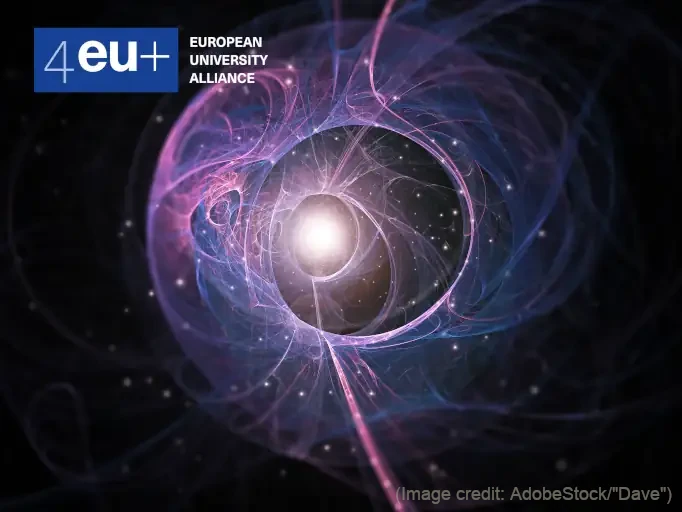
(Image credit: AdobeStock/"Dave")
We are happy to announce the upcoming 4EU+ Master-level course “Quantum Information and Quantum Many-Body Theory”, running from 26 February to 19 June 2026. The course is offered within the framework of the 4EU+ European University Alliance and jointly delivered by University of Warsaw, University of Milan, University of Geneva, Heidelberg University, Sorbonne University, and Charles University.
Responding to the second quantum revolution – the move towards direct control and engineering of quantum systems – this course equips students with a strong theoretical foundation in quantum information and many-body theory. Participants will explore key concepts such as entanglement, non-locality and quantum spin systems – gaining insight into the latest developments in those fields. These foundations are essential for emerging quantum technologies, including quantum information processing. Furthermore, the course will help the participants to develop competencies to engage in self-organized cross-university and interdisciplinary collaborations via online groupwork as well as to give and receive peer-feedback on results.
The course consists of online lectures and a summer masterclass at Sorbonne University.
Registration is open until 19 February, 2026.
The 4EU+ European University Alliance brings together eight comprehensive, research-intensive public universities from four regions of Europe, working collaboratively to strengthen education, research, and innovation through integrated cross-border programmes. The vision is to establish a truly integrated European university system, marked by a new quality of cooperation in education, research, innovation and outreach.
Further information:

We are delighted to congratulate our member Prof. Dr Astrid Eichhorn, Professor of Theoretical Physics at Heidelberg University, on having been awarded the 2025 Forum Wissen Award by the Forum Wissen Association. The prize honours researchers who have made exceptional contributions to science communication as well as innovative teaching and outreach concepts. The award ceremony took place on 13 November 2025.
The jury highlighted Prof. Eichhorn’s significant commitment to making science accessible to a broad public. In particular, they praised her efforts to break down stereotypes about scientific careers and to encourage young people to pursue their own paths in science. A key element of this commitment is her role as co-initiator of the children’s and youth book project “Young Scientists,” developed within the framework of the Young Academy. The book presents personal stories and career paths of researchers from a wide range of disciplines, offering authentic insights into scientific life and helping to break down stereotypes – especially encouraging girls to pursue their own paths in science.
Beyond this project, Astrid Eichhorn has been actively involved in initiatives focusing on science communication, diversity in academia and the structural development of the research system during her time as a member of the Young Academy. Her work exemplifies a form of science that actively engages with society and promotes dialogue beyond the academic community.
Further information:
Bridging Worlds of Quantum Matter: STRUCTURES Researchers Solve Longstanding Quasiparticle Puzzle

A new theory developed in Heidelberg connects the Anderson orthogonality catastrophe for static impurities with the quasiparticle picture of mobile impurities.
When a single particle moves inside a sea of many others, their mutual interactions can give rise to new collective behaviours, such as the formation of so-called quasiparticles. These emergent forms of matter display properties of individual particles even though they arise from the coordinated motion of many particles, acting together as if they were a single one. An important example is the Fermi polaron, which forms when an impurity is introduced into a sea of fermions – particles such as electrons that obey what is known as Pauli exclusion principle. Like a pebble dropped into calm water, the impurity perturbs its surrounding, forming a particle-like pattern: the polaron. These polarons serve as a cornerstone for understanding novel quantum materials and ultracold atomic gases.
For years, however, physicists have faced a fundamental puzzle about the formation of Fermi polarons: how can their familiar quasiparticle nature coexist with a phenomenon known as the Anderson orthogonality catastrophe? The latter is a theoretical prediction stating that if the impurity is made so heavy that it becomes effectively immobile, it should instead completely disrupt its environment.
A new study by Xin Chen, Eugen Dizer, Emilio Ramos Rodríguez, and Richard Schmidt – three of whom are members of STRUCTURES – resolved this long-standing question. The researchers developed a unified theory that smoothly connects the two seemingly contradictory regimes. The key insight lies in the impurity's unavoidable response to changes in the environment, which softens the disturbance it causes. In particular, when the surrounding medium adjusts, an impurity with finite mass cannot remain at rest: even if its net momentum is zero, it must recoil as the medium reorganizes. This creates what physicists refer to as an “energy gap” – a small energy cost for disturbing the medium. As a result of this gap, the impurity and its neighbouring particles can develop a smooth, coordinated motion, forming a well-defined quasiparticle. In contrast, if the impurity becomes heavier, it can respond less to its surrounding, and the medium reacts more strongly – until, in the extreme limit of an immobile impurity, the quasiparticle nature ultimately breaks down.
This mechanism explains how quasiparticles emerge from an otherwise “gapless” medium and reveals the microscopic origin of the observed transition between polarons and molecules. The new theory provides a simple yet powerful description of interacting quantum systems, with broad implications for ultracold-atom experiments, novel atomically thin semiconductors, and future studies of strongly correlated matter.
The new study has been published in the Physical Review Letters.
Further information:
